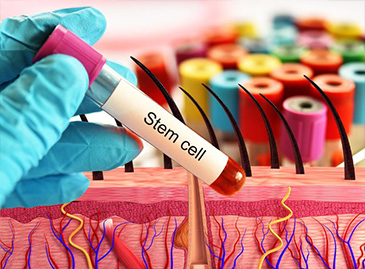Stem Cells Therapy in Turkey
The way we think about treatment and healing is evolving thanks to stem cell therapy. It offers hope in areas where traditional medicine often struggles with chronic conditions, degenerative diseases, and injuries that affect our quality of life. But what exactly are stem cells, and why is there so much excitement around them?
We are with you throughout the entire process
You will find some useful information that will help you prepare the necessary organization to prevent all problems and make the necessary arrangements to ensure that everything goes smoothly during your stay in Turkey.
After our with doctor answers all your questions, doctor will explain to you how the operation process will proceed.
You will have a preliminary meeting with the doctor and team we work with before the operation.
Read the document we sent you before coming to Istanbul and be sure to follow the rules.
During the recovery process, our teams will call you, ask about your condition and ask for photos.
FAQ for Stem Cells Therapy
You can find detailed information about the operation and organization you will have before coming to Turkey. You can contact your sales representative for any other questions you may have.
- A stem cell is a special cell that can turn into different types of cells and help repair damaged tissues in the body.
- Stem cell therapy uses the body’s natural repair system to regenerate damaged or diseased tissues through cell replacement and healing signals.
- It may help with heart failure, arthritis, sports injuries, autoimmune diseases, skin aging, infertility, and neurological issues.
- Most procedures take a few hours and are done on the same day, without the need for overnight hospital stays.
- Costs in Turkey are generally more affordable than in many other countries, making it a popular destination for treatment.
Authorized by the Ministry of Health and Tourism in Turkey
What Is a Stem Cell?
A stem cell is a specialized type of cell in the body that has the ability to differentiate into many different cell types. While most cells have one job, like forming skin, blood, or muscle, stem cells are more flexible. They can divide and become other cells that your body needs to repair damaged tissues or grow new ones. There are several types of stem cells, but they all share two important abilities: they can self-renew (make more copies of themselves), and they have the ability to transform into or change into other kinds of cells. They have been highly advantageous in medicine because of this.
Different Types of Stem Cells
Stem cells fall into three major categories:
- Embryonic stem cells – These can develop into any form of cell in the body since they are pluripotent. However, ethical and legal issues restrict their utilization.
- Adult stem cells – These cells, which are present in a number of tissues such as bone marrow and fat, have a more restricted range of potential applications, yet they are frequently employed in therapeutic settings.
- Induced pluripotent stem cells (iPSCs) – These adult cells are flexible and do not involve ethical issues. They have been changed to act like embryonic stem cells.
Among these, one type of adult stem cell has gained special attention in clinical applications: mesenchymal stem cells, or MSCs.
The Power of Mesenchymal Stem Cells (MSCs)
Adult mesenchymal stem cells are well-known for their adaptability and capacity for healing. They are commonly sourced from bone marrow, fat tissue, or umbilical cord tissue (like Wharton’s jelly). These cells can become bone, cartilage, fat, and muscle cells, making them especially useful in orthopedic and regenerative treatments. But what makes MSCs even more special is their anti-inflammatory and immune-modulating properties. This means they don’t just replace damaged cells; they also create a healing environment, reducing inflammation and helping the body repair itself more efficiently.
MSCs are used in anti-aging and treating a wide range of conditions, including:
- Heart failure
- Eye disease
- Osteoarthritis
- Autoimmune diseases
- Skin and tissue damage
- Fertility-related issues
- Neurological conditions
MSC-Derived Exosomes
A significant portion of the therapeutic effect of stem cell therapy, according to recent research, is attributed to molecules released by stem cells, specifically exosomes. These are tiny bubble-like particles that stem cells use to send messages and healing signals to other cells in the body. When scientists grow mesenchymal stem cells (MSCs) in the lab, they release exosomes filled with proteins, growth factors, and RNA. These exosomes can be purified and used in therapy, offering a cell-free alternative to stem cell injections. The advantage of exosome therapy is that it doesn’t involve live cells. This preserves many of the advantages of stem cell therapy while lowering the possibility of immunological rejection or unregulated development. In fact, MSC-derived exosomes are now being used in advanced treatments for:
- Fertility enhancement
- Hair loss and skin rejuvenation
- Sports injuries and chronic pain
- Eye conditions like macular degeneration
What the Stem Cell Therapy Process Looks Like
The process usually starts with a consultation and medical evaluation. The next stage in stem cell therapy is to harvest stem cells from your body (such as bone marrow or adipose tissue) or use donor cells that have been ethically sourced, like MSCs from Wharton's jelly, if you qualify. Once prepared, the stem cells or exosomes are delivered to the area that needs healing. This could be done through direct injection (for joints or muscles) or intravenous (IV) infusion for more systemic effects. The treatment is often performed under local anesthesia and usually requires no hospital stay.
Is Stem Cell Therapy Safe?
Research indicates that stem cell therapy using mesenchymal stem cells (MSCs) and their exosomes is safe when performed by experienced doctors in accredited clinics. This intervention is minimally invasive, and the materials are thoroughly checked. That said, it’s important to understand that not all stem cell treatments are the same. Some are still in experimental stages, while others are backed by clinical studies and regulatory approval. Always consult with a trusted provider to understand the risks, benefits, and scientific backing of any therapy.
Cost of Stem Cell Therapy
The type of cells (MSCs vs. others), whether exosomes are involved, the number of sessions needed, and the ailment being treated are some of the variables that affect the cost of stem cell therapy. Although prices may differ, expenses in Turkey are typically far lower than in many Western nations without sacrificing quality. At centers like Istanbul Med Assist, patients receive personalized care, modern facilities, and access to advanced regenerative treatments, including MSC and exosome therapy, at competitive rates.
Why Consider Turkey for Stem Cell Treatment?
Turkey has become a leading destination for regenerative medicine, attracting patients from Europe, the Middle East, and beyond. This is thanks to:
- Highly trained medical teams
- Internationally accredited hospitals
- English-speaking support staff
- Affordable pricing
- Comprehensive patient care and hospitality
Istanbul Med Assist is one of the clinics helping patients access advanced stem cell and exosome therapies safely and comfortably, with full support throughout their journey.
Final Thoughts
Stem cell therapy represents an advancement in the way we heal, not the latest trend in medicine. From mesenchymal stem cells to exosome-based treatments, science is providing new, less invasive ways to restore health and function. If you're exploring options for chronic conditions, injury recovery, or overall rejuvenation, stem cell therapy may be worth considering. With expert guidance and a personalized approach, the future of healing is already here.




